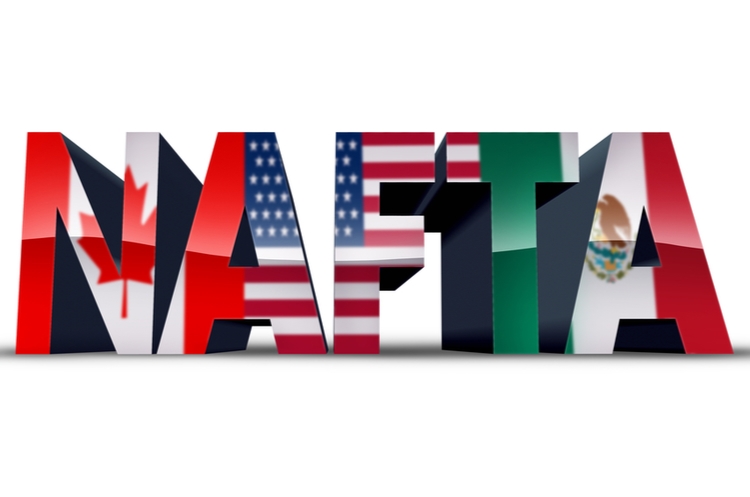Trump & Trade – The Heat is On

It has been an interesting time in the NAFTA talks. After the Mexico round, the Trump Administration increased the pressure to announce an agreement in principle on NAFTA before the end of April. The idea is clearly to have a “win” to deliver for the mid-term elections in the United States. Mr. Lighthizer made some concessions in the automotive area, but there is one proposal on which the United States is being quite rigid, which is very difficult for Mexico: the requirement that certain high-tech parts be used only in plants that pay employees more than US$15 per hour. That would cut Mexican plants out of a good deal of assembly work.
On the Canadian side, even if Ms. Freeland could live with the deal on autos, many American demands remain on which there is no agreement. For example:
- Discontinuance of Canada’s supply management system for eggs and dairy;
- Elimination of Chapters 11 and 19, the dispute settlement mechanisms;
- “America first” procurement policies; and
- The five-year sunset clause.
There have been signs that business investment in Canada is slowing because of uncertainty about NAFTA. Many potential investors in Canada want to take advantage of Canada’s access to the U.S. market. It would not be sensible to proceed if the market for the investment is in jeopardy. Even with NAFTA agreed, a five-year sunset clause would have a chilling effect on its own.
In addition, the Trump Administration has threatened to impose steel and aluminum tariffs on Canada and Mexico if the NAFTA talks are not concluded to its satisfaction. Readers will recall that those tariffs were imposed under the President’s ability to act in the interest of “national security.” Ms. Freeland has stated that there is no justification for these tariffs, presumably because there is no national security element.
If these tariffs are imposed, and Ms. Freeland is in charge of the response, I would anticipate a rapid legal initiative to enjoin the effectiveness of the tariffs on the grounds that the President does not have the authority to impose tariffs contrary to existing treaties for the purpose of renegotiating those treaties. Mr. Trump’s record with the U.S. courts is not that good and I imagine this threat will go away in the face of a robust response.
The Trump Administration has now purported to extend the date when such tariffs will be imposed to June 1, providing another month to reach agreement in principle. While the intention is to put pressure on Canada and Mexico to sign a deal they do not want, this particular threat has little credibility and is unlikely to be effective. The threat of terminating NAFTA appears to have receded.
It is interesting that although details of the auto sector negotiations have been leaking out with regularity, Ms. Freeland has remained non-committal except to say that everyone is working hard and some progress has been made. Prime Minister Trudeau, however, has been on a diplomatic offensive and has been happily making predictions that the end is near.
Time has shown that agreement is far from imminent. My view continues to be that if a sensible deal on the automotive sector can be reached, a successful outcome to these talks is somewhat more likely than it was, but it will not be smooth sailing. It also seems that Mr. Trump really wants a deal and we know from experience that, for him, the content of the deal is of secondary importance. Ms. Freeland is right to hang tough and let the Trump Administration come to her.
While it is clear that there is a lot of pressure on Canada and Mexico, the more interesting pressure to me is that brought on Mr. Lighthizer by his own administration. They want a deal and they want it now. It must be saleable as an “America first” trade deal, but no particular item in it is sacrosanct. I anticipate more concessions and ongoing discussions without the imposition of tariffs but under a barrage of threats to do so. The termination of NAFTA is not on the top of the agenda. However, lower U.S. corporate taxes, combined with uncertainty regarding the Trump Administration’s position on trade matters, are doing their job to keep investment out of Canada.
At some level, you need to question what sense it makes to make a “deal” with a counterparty that has no commitment to the rules of engagement. If something irritates the Trump administration about trade with Canada or Mexico, it is very unlikely that the fact that a deal is in place would make any difference. They would find a way to “adjust” the deal so it suited them and use whatever methods come to hand. Take, for example, the imposition of tariffs on aluminum and steel using powers that are clearly not available for the purposes intended. The value of a “permanent” exemption from the Trump administration is worth exactly what the integrity of the grantor of the exemption is worth.
I was recently listening to a commentator on the CBC who was predicting economic mayhem if some sort of deal is not signed, and soon. I disagree with that position. The Trump Administration wants NAFTA and they want it while the Republicans still have control of both houses of Congress, before the mid-term elections. Why? Because if the Democrats control Congress, there will be less pressure to even address this matter. And, if there is a deal, the Trump Administration can tout it as an accomplishment for their confrontational brand of trade policy. That would help them in the mid-term elections and make long-term losers of all Canadians and Mexicans. Better to stand firm and let a reasonable deal come to us.

